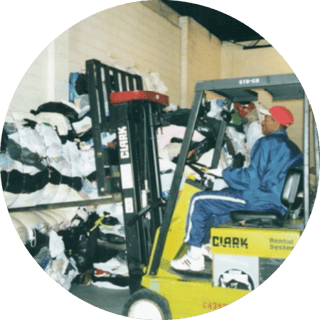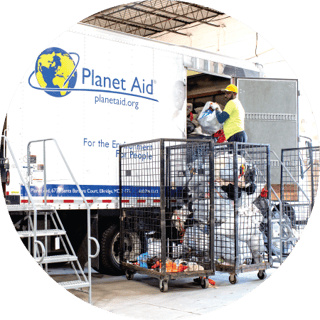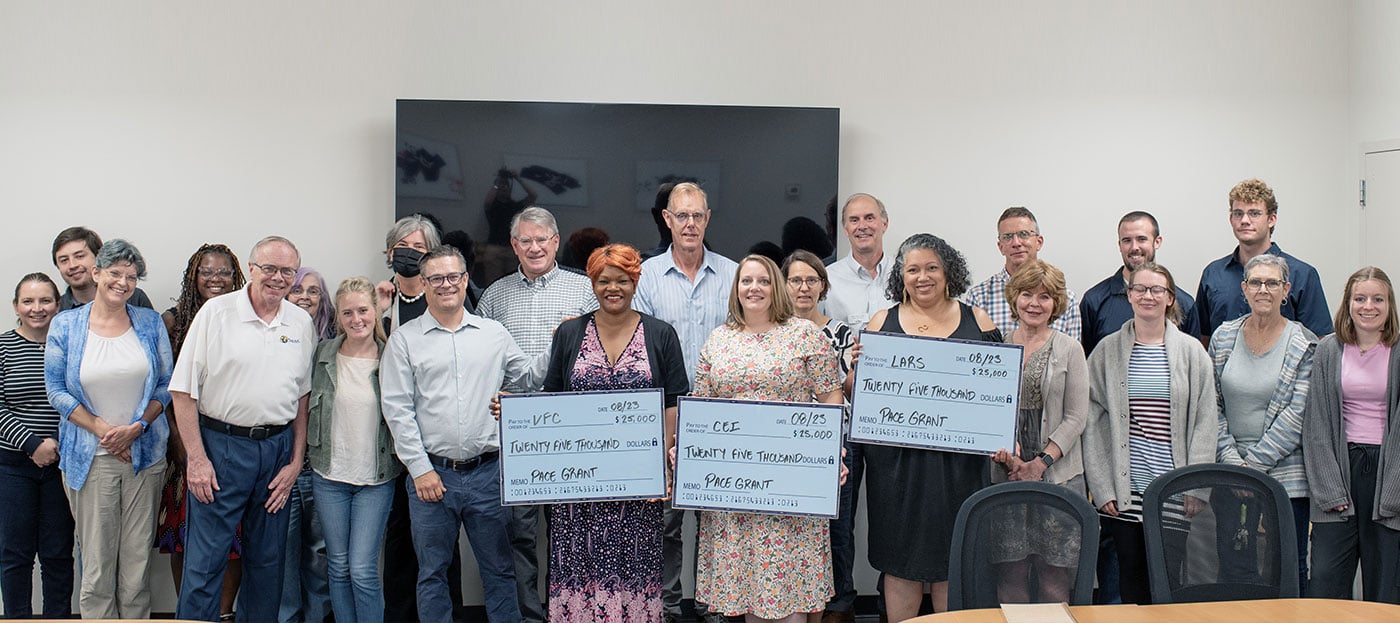Planet Aid: Pioneering textile reuse to empower communities
Planet Aid is a nonprofit organization protecting the environment and funding community development.
Planet Aid pioneered textile reuse in the U.S. in 1997 to raise funds for community-led programs that promote education, health, and environmental and agricultural sustainability.
As a nonprofit organization, we support a second hand circular economy to reduce landfill waste and provide livelihoods for millions in the second hand clothing industry.
Over 25 years, we have diverted nearly 2 billion pounds of textiles from U.S. landfills and raised ~$100 million for community-led development.
Looking back at 25+ years of environmental stewardship and community development
-

Founded in 1997 in a small facility outside Boston with just a few collection bins and big goals
With a desire to protect the environment and empower communities, Planet Aid began collecting used clothes and shoes in 1997. Our work demonstrated that people will seize the chance to help if given an opportunity. In 1999, we moved to a larger warehouse in Holliston, MA, which remained Planet Aid’s hub in the state for 14 years.
-

Forging partnerships to increase impact and tackle global challenges
Partnerships help increase our global impact. In 2001, we partnered with Johnson & Johnson to fight AIDS in Southern Africa. In 2004 and 2012, we secured USDA grants for local partners running nutrition, education, health and agricultural programs in Sub-Saharan Africa. In 2011, we helped provide nutritious meals in Zimbabwe with USAID funding.
-

Planet Aid grows to collect nearly 2 billion pounds of used textiles.
In 2014, Planet Aid passed the major landmark of 1 billion pounds of textiles diverted from U.S. landfills. Today, operations have grown to 17 states in the Mid Atlantic, Northeast and Midwest. We have diverted nearly 2 billion pounds of textiles from U.S. landfills and raised more than $100 million to fund community-led development projects.

